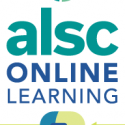
Creating a library program can be daunting regardless of an audience’s age. Developing a program for K-8 students— one that aligns with curriculum, stays on budget and keeps kids engaged — comes with a unique set of challenges.

PLA partnered with the American Library Association (ALA) Public Programs Office to present this webinar designed to teach participants the value of measuring outcomes within library programs. This introductory webinar provides an overview of outcome measurement and the Project Outcome tools, and is specifically aimed toward programming librarians interested in getting started using outcome measurement.

In January of 2014, there were 578,424 people experiencing homelessness on any given night in the United States. Homelessness among children and families has risen to an historic high. Adults, youth, and families experiencing homelessness face a wide range of challenges including lack of affordable housing, employment opportunities, healthcare, social connections, and other needed services, as well as high rates of exposure to traumatic stressors that impact health and well-being. As homelessness increases, so does the significant intersection between homelessness and library service.

This on-demand webinar will help viewers understand how social media listening tools like social dashboards can be used to gather insights on a local community’s reaction to isolation and self-quarantine during the coronavirus pandemic. Also learn to use these insights to adjust services and plan programs that address active community needs.

Not all of your library program ideas and best practices transfer over perfectly to the virtual world. However, more do than you think! This webinar will focus on best practices for virtual programming, modifying your in-person programs to go virtual, and innovations to make virtual programming more personal and interactive. Get the basics so you can feel more confident in formulating ideas and presenting virtual programs.

Libraries are places for discovery that extends beyond the shelves — to classes, public programs and civil discourse. What responsibility do we, as library professionals, have to ensure that the content of our programs adheres to the same standards as our collections? To what extent are we obligated to protect the free speech of our patrons as well as our authors?

Many library staff, especially library staff serving teens, lead with their passions for serving patrons. Many of the ideas in the Future of Library Service for and with Teens report are big ideas -- ones that we may not be able to change quickly or on our own. How can we, as library staff serving teens prioritize, plan, give up control, and think about our work differently so that we can take on new services, discontinue other areas and avoid burn-out.

Are you trying to build a world of imagination without inciting a wild rumpus? Does your play environment foster skills for early literacy or for the monkey bars? Four Youth Services departments will lead a discussion of play space design and management. Bring your hits, your misses, and your burning questions to this informative exchange of ideas. A list of recommended vendors and play items will be provided.

Are you trying to build a world of imagination without inciting a wild rumpus? Does your play environment foster skills for early literacy or for the monkey bars? Four Youth Services departments will lead a discussion of play space design and management. Bring your hits, your misses, and your burning questions to this informative exchange of ideas. A list of recommended vendors and play items will be provided.

Francis Feeley, school librarian at the Inter-American Magnet School, Chicago, and winner of the 2012 Sara Jaffarian Award, will present his winning model for humanities programming in the school library. The program, titled “Who Are We?,” challenged seventh- and eighth-grade students to explore the individual and collective behavior of human beings in the past and present in a series of quarterly research projects.
